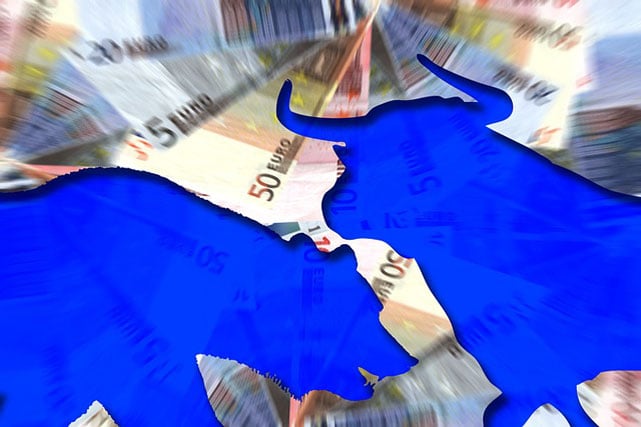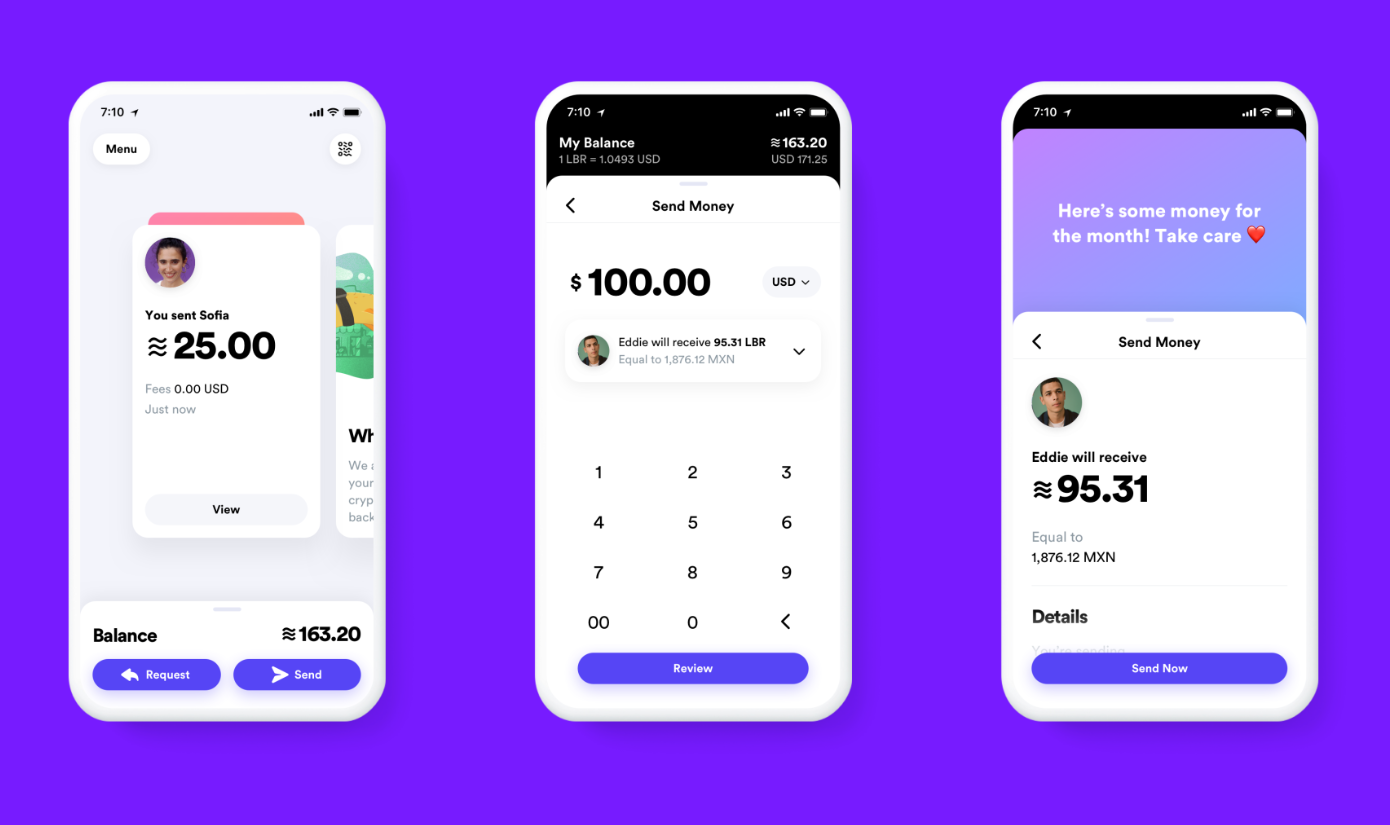
LIBRA UPDATE: Not a day after the official announcement on Facebook's shiny new Libra crytpocurrency, officials from the social media giant have been summoned to testify before a US Senate panel over the digital currency project.
David Marcus, who has headed Facebook's blockchain efforts is expected to give evidence before the US Senate Banking Committee on July 16th with data privacy considerations expected to be high on the agenda.
Facebook has faced significant backlash over recent months over mishandling of user data, not doing enough to prevent Russian interference in the US 2016 elections and for abetting in the breach of election campaign rules in the run up to the 2016 EU referendum.
Representative Maxine Waters of the House Financial Services Committee has also said she plans to request testimony from Facebook on the project and has asked the company to put a pin in the project while policymakers make their evaluation.
Facebook has as of yet not made an official response to the requests and as it stands Libra remains set to launch in H1 2020.
The crypto-sphere was a-buzz with activity on Tuesday following Facebook's announcement on their highly-anticipated entrance into the cryptocurrency market.
From the official Facebook announcement: "Today we’re sharing plans for Calibra, a newly formed Facebook subsidiary whose goal is to provide financial services that will let people access and participate in the Libra network. The first product Calibra will introduce is a digital wallet for Libra, a new global currency powered by blockchain technology. The wallet will be available in Messenger, WhatsApp and as a standalone app — and we expect to launch in 2020."
According to the article, Calibra aims to overcome barriers to basic financial services, opening up the world of saving, spending and sending money to anyone with a smartphone and internet access.
From the release: "Calibra will let you send Libra to almost anyone with a smartphone, as easily and instantly as you might send a text message and at low to no cost. And, in time, we hope to offer additional services for people and businesses, like paying bills with the push of a button, buying a cup of coffee with the scan of a code or riding your local public transit without needing to carry cash or a metro pass."
But what will the entrance of arguably the worlds most powerful private surveillance apparatus into a sector dominated by a push towards de-centralisation and anonymity mean?
According to the whitepaper accompanying the official announcement, Facebook doesn't see the cryptocurrency as an attempt to replace or compete with Bitcoin, rather its intended to extend basic financial services to under-served populations that currently lack access taken for granted in many first world countries.
Around the globe almost 2 billions adults "remain outside of the financial system with no access to a traditional bank, even though one billion have a mobile phone and nearly half a billion have internet access," according to the paper.
Furthermore, while Bitcoin has flourished over the last five years, growth has been largely organic. With Facebook arguably one of the worlds premier marketing platforms with over 2 billions users worldwide, we can expect no lack of Libra demand when it launches next year.
"Facebook has 2.4 billion users worldwide, apparently. If they all start using Facebook money – phew! The potential is phenomenal. Things like the pound and the US dollar will become a sideshow," wrote Dominic Frisby of MoneyWeek.
Nicholas Colas, co-founder of DataTrek Research wrote "For large chunks of the world, Libra will be about having a superior form of payment and wealth preservation."
How Will Libra Work?
The newly-formed cryptocurrency will be managed by a Swiss-based (Calibra), a subsidiary of Facebook with Facebook stressing that the Calibra system will not be used to share "account information or financial data". Given the flack Facebook has come under recently for possible intervention in political campaigns around the world, its unsurprising the social media giant is looking to put some distance between itself and the management of Libra.
The Libra blockchain itself is expected to be maintained by a network of nodes operated by outside companies, i.e., those backing and adopting the use of Libra, with each of these companies expected to pay around $10m for the privilege.
According to the Libra landing page, there are currently more than two dozen founding member companies including global giants Mastercard, PayPal, Visa Ebay, Uber and Vodafone.
Having a highly centralised authority puts Libra starkly at odds with the vast majority of cryptocurrencies like Bitcoin which relies on decentralisation as a cornerstone of its ethos.
Another way in which Libra will differ from the alts and cryptos we've become familiar with is in its fee structure. In a bid to entice adoption by both consumers and businesses alike, Facebook intend to make peer-to-peer transactions free or low cost, overcoming a major barrier to main-stream adoption faced by a number of high-fee crytocurrencies.
From the Calibra website: "Transaction fees will be low-cost and transparent, especially if you're sending money internationally. Calibra will cut fees to help people keep more of their money."
So how will Libra make money? While it would be nice to assume the social media giant is truly undertaking this multi-million $ project to increase accessibility to financial services around the globe, the end goal is indubitably profit. While peer-to-peer transactions are expected to be free or low-cost to incentive user adoption, further down the line the company could add further services such as a loan facility from which to generate revenue.
Moreover, and in contrast to 'normal' cryptocurrencies which are deemed vulnerable and volatile given they aren't backed by a commodity or government, Calibra intends to use the fees gained from early backers to back Libra with a "basket of currencies and low-risk securities from various countries,” including the UK Pound and US Dollar to keep the coins value stable and mitigate the high levels of volatility associated with most other cryptocurrencies.
In terms of accessibility, Facebook says that Libra will be made available to Messenger and WhatsApp users who will be able to exchange domestic currency for the digital which will then be stored in the Calibra digital wallet.
With estimates of total global adoption of cryptocurrencies expected to currently be limited to less than 100 million users, Facebook's instant access to over 2 billion could see crypto adoption become mainstream virtually overnight.

Above: Facebook Calibra Prototype Screen Shot
Essentially, Libra looks set to overcome a number of the issues inherent in traditional cryptocurrencies by removing fees, facilitating lightning-fast transactions and focusing on ease of use by integrating with apps and programs already familiar to the end user.
"Everybody understands the global payment system is inefficient in cross-border transactions, and there’s no bigger market than money,” wrote Colas, adding "It’s the biggest market on the planet.”
When Will I be Able to Set up a Digital Wallet and Buy Libra?
With the cryptocurrency and supporting tech set to launch in the first half of 2020, users will have a while to wait before they can get involved.
However, future users can sign up to receive email notifications ahead of the launch to get in on the first rung. While a Facebook backed cryptocurrency has the potential to explode in terms of user adoption, given the backing by the Libra Reserve, its unlikely we'll see any of the frankly ludicrous gains made by Bitcoin and other free-floating cryptos.
In stark contrast to the anonymity pursued with vehemence among the traditional crypto-market, Calibra users will need a government-issued ID to sign up for an account with Facebook citing a need to comply with laws and prevent fraud.
Key Points:
- While conceived and created by Facebook, Facebook will set up a subsidiary (Calibra) that will be responsible for managing the cryptocurrency and the digital wallet that will be used to store Libra.
- Libra is designed to facilitate fast and cheap cross-border payments and is being marketed particularly targeting people in emerging markets who may encounter increased barriers to basic financial services
- Unlike Bitcoin and other cryptocurrencies and altcoins, Libra will be backed by a reserve of currencies and low-risk assets in a bid to reduce volatility